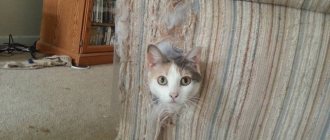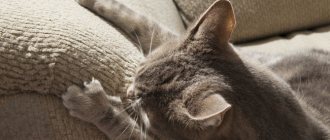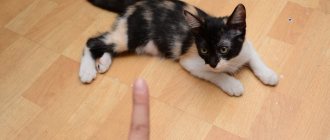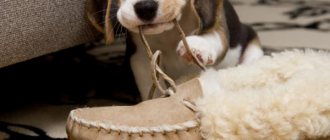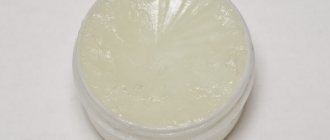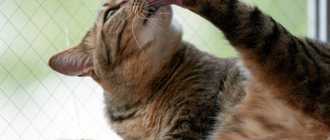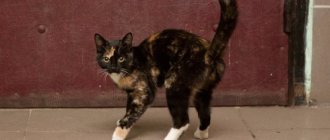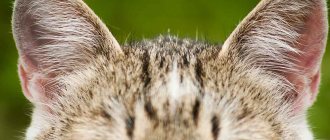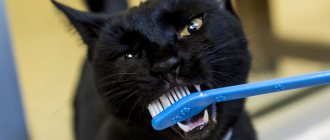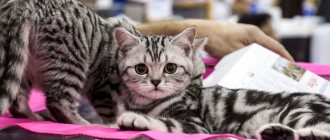The behavior of pets is not always predictable. Sometimes, after experiencing fright or severe stress, a domestic cat begins to randomly mark its territory. In addition to these reasons, other factors that need to be recognized and excluded indicate behavioral disorder. In the material, we looked at what smell cats are afraid of and how to use scents so that pets don’t shit in the wrong place. You will also learn what chemical repellents are available and what not to do when using aromatherapy as a pet repellent.
What are the reasons
A cat is a graceful animal, whose distinguishing feature is considered to be an excellent sense of smell. The vomeronasal organ (Jacobson's tube), which is located at the base of the oral cavity, smoothly passing behind the front teeth, is responsible for the animal's excellent sense of smell. Such a tube is capable of perceiving any odors and transmitting impulses to the olfactory areas of the brain.
© shutterstock
Despite the fact that a furry pet is a kind and affectionate friend for its owner, it remains a predator whose genetic ability is to track and capture prey. Therefore, smells are very important information for such an animal. With the help of such information, animals are able to get used to their surroundings, communicate and delimit territory.
And sometimes this may not seem entirely clear to the potential owner of the animal; many cat behaviors can be controlled by addressing the pet in the language of smell. Such “words” can be divided into the following points :
- smells that repel pets;
- scents that attract them.
But, first of all, it is important for the owner to instill in the pet respect for prohibitions, therefore repellent aromas are most relevant.
How does a cat's sense of smell work?
Cats are very sensitive to odors, both repulsive and attractive. Usually, when owners call on smells to fight hooliganism, they only remember the first ones, but the second ones are also effective.
The sense of smell of various animal species is usually assessed by the number of olfactory receptors. According to this indicator, a cat’s sense of smell is 14-16 times better than ours, and a dog’s is 42-64 times better. Cats smell more than just their nose. They, like some other animals such as dogs and horses, have a vomeronasal organ, which provides a peripheral sense of smell. People don't have that.
If you open a cat's mouth, you will find a small round flat formation immediately behind the upper incisors. This is Jacobson's organ, or vomeronasal organ.
With its help, they smell pheromones - special volatile substances with an individual odor that animals secrete to mark the border of their territory and attract individuals of the opposite sex. In addition, pheromones can transmit both anxiety and a sense of security between members of the same species.
When a cat tries to “sniff out” pheromones, he opens his mouth slightly, breathes a little faster than usual, and breathes shallowly. The expression on his face is quite specific.
Repellent Scents - A Brief Overview
Although odors are called repellent, they are in no way capable of harming the life and health of a pet. It’s just that for a sensitive cat’s nose, strong odors are a whole test from which the pet tries to protect itself. It doesn’t matter what aroma the animal has to encounter. Be it an expensive perfume or an ordinary onion, which can cause discomfort even to a person, not to mention a pet.
First of all, the cat reacts to the harshness of the aroma and only then to how unpleasant it is. How can you make a cat’s nose an ally for its owner in the fight against his bad habits? Pet owners need to make sure that in places prohibited for the animal there is exactly the smell that will scare it away.
Citrus
The smell of citrus fruits can have a deterrent effect on the animal's receptors. Suffice it to remember the reaction of a cat when the owner peels an orange or tangerine. A cat, sneezing, tries to run away from the irritant as far as possible.
© shutterstock
If you take this factor into account, you can simply place the peel of a lemon or any other citrus fruit in places that are prohibited for cats. The citrus smell can scare them away, thereby protecting your pet’s furniture and clothes.
You might also want to try lemon-scented polishes or citrus-scented furniture detergent.
Discouraging vegetable odors
Many owners have noticed that their cat does not like the smell of onions or garlic. In order to scare an animal away from places prohibited for it, it is enough to grate onion or garlic and place it where the presence of the animal is undesirable. This smell can scare them away for a long time.
But there are other manipulations with this type of vegetable that will help scare away your pet .
Some owners simply grate onion or garlic, add water and leave the mixture for several hours. Afterwards they filter and process the furniture.
How to scare cats away - popular industrial products
- NM JFC Pet Block Cat Repellent Spray;
- Beafar STOP IT CAT;
- Mr. Fresh Anti-scratch protection;
- Spray repeller for cats Faithful friend “4 in 1”;
- Stop Problem.
NM JFC Pet Block Cat Repellent Spray
The scent repellent product for cats has a special, concentrated, long-lasting formula that helps reduce litter box training time and prevents unwanted behavior in your pet.
Areas of walls, furniture and other interior items treated with this product are reliably protected from cat claws. The spray contains a natural repellent. The product is completely safe for people and pets.
Price: bottle 237 ml. – 450 rub. More details about the product
Beafar STOP IT CAT
A reliable repellent spray weans cats from places where they are undesirable. The product contains: methylnonyl ketone - a substance with an odor that resembles acetone. In nature, this substance is found in large quantities in the fragrant rue plant.
To achieve maximum effect, it is necessary to treat the places chosen by cats for their toilet every 24 hours until the animal stops shitting past the tray.
Price: bottle 100 ml. – 580 rub. More details about the product
Mr. Fresh Anti-scratch
An inexpensive, domestically produced spray protects walls and furniture from scratching. The drug contains: isopropyl alcohol, wormwood bitterness and fragrance. The product is absolutely safe for animals and humans.
Price: 200 ml. – 156 rub. More details about the product
Spray repeller for cats Faithful friend “4 in 1”
The product discourages cats from scratching and marking places that are not intended for this. Treatment is carried out according to the instructions until the animal completely loses interest in the treated surfaces. Neutralizes unpleasant odors.
Price: 200 ml. – 135 rub. More details about the product
Perfumery
In this case, an important feature is the durability and sharpness of the perfume. In order to scare away an animal using eau de toilette or perfume, you should use a fairly large amount of perfume, since each animal and its receptors are individual
© shutterstock
Essential oils
If the aroma of any essential oil evokes positive emotions in humans, on the contrary, for cats, the aromatic composition can cause discomfort and arouse a feeling of disgust in the pet. This factor is wisely used by many pet owners. But not all aromas can scare away an animal; for example, cats like the smell of valerian, but they cannot stand the aroma of rosemary.
Pet owners make special formulations. Usually a couple of drops of oil are diluted in water and sprayed on the animal’s “favorite” places. But first, it’s worth checking whether such a consistency will harm the furniture. In addition to spraying, you can use cotton balls soaked in rosemary essential oil. The pungent smell of such oil will quickly fill the space of the room and will be remembered by the animal for a long time.
Cats cannot tolerate the smell of lavender, mint leaves or citronella extract. In order to scare away a four-legged animal from places prohibited for it, you just need to wipe them with a damp cloth, previously soaked in one of the essential oils.
Another effective method is to make a decoction of herbs. The vessels also include leaves of rosemary, lavender or cayenne pepper. Typically, the composition of these plants is infused in boiled water for several minutes and the decoction is sprayed onto the furniture using a special sprayer. This product is completely harmless to human health, indoor plants, clothing or furniture, but can scare away a pet for a long time.
© shutterstock
The main reasons why a cat shits
Males and female cats are introduced to the litter box when they are still kittens. At a young age, they learn to relieve themselves in a designated place; the owners carefully select equipment and filler that will meet the needs of the animal. It would seem that everything worked out and for a long time the pet regularly pleases with its cleanliness. But, unfortunately, no one is immune from surprises and a glitch occurs, as a result of which the pet begins to leave puddles and mines in the wrong places.
- The cat is no longer satisfied with the litter box. Yes, this happens too. As we have already said, cats are very clean animals; they strive to relieve themselves in clean and safe places. The tray should be cleaned regularly, and there should be no sharp sounds or smells in its location that could confuse or frighten the pet. In addition, the tray may simply be inconvenient: the sides are too low or high, the size is inappropriate, the position is shaky, there is too much or too little filler.
IMPORTANT: owners recorded situations in which the cat was so shy that it refused to go into an open litter box. The situation was saved by a “closed” type tray, which allowed the pet to comfortably retire and do its business.
Animals have individual characters and preferences.
- Chronic fear. There are situations when an animal regularly experiences negative emotional outbursts, which leads to a general behavioral disorder: the animal becomes irritable, avoids affection, tries to hide from others and mistrusts what is happening around it. The pet is looking everywhere for a safe place where he can sleep, eat and relieve himself. Such negative habits are acquired in families where the noise level is significantly exceeded (quarrels, screaming, loud actions).
- Severe stress. An animal may not always realize the need for any action. And if for a person such events as a long-awaited move or the birth of a child are a joy, then for a pet they are a serious test for the cat’s psyche. The fact is that these animals are conservatives in the best sense of the word. They love peace, peace, stability and security. Such sensations can be caused by places that have long been studied and lived in so much that they allow you to enjoy a comfortable life. Any changes are a reason for the cat to doubt his position and begin to defend his territory again in this simple way.
Moving is not always a holiday
- The cat has “grown up.” The cat or kitty grows up and enters the period of “mating hunting”. Cats begin to mark everything around, and cats go through periods of heat, during which they can also relieve themselves where they shouldn’t. Regulating your pet's hormonal levels through castration or sterilization will help here.
- Presence or development of the disease. The most unpleasant reason is that the pet may be sick. This may be indicated by other behavioral changes: general sickness of the pet, apathy, reluctance to eat and drink, apathy, aggression.
Rue
Based on numerous reviews from potential owners, we can conclude that it is possible to scare away a cat with the smell of such a plant, but it is not safe for the person himself. After all, rue is a fairly strong allergen, especially for young children.
But out of desperation, many owners still decide to use this plant. You can use both the oil of this plant and its branches, placing them around the cat’s habitat.
Herbs and spices
The smell of greenery can not only scare away the animal, but also drown out the fetid smell of cat hooliganism. Fennel oil or a freshly picked bouquet of dill will help the owner achieve positive results. It’s enough to simply rub the cat’s haunted area with fennel, and wash your clothes with a few drops of dill oil.
Every housewife has a bouquet of spicy spices in her inventory. Which include :
- Dry mustard;
- Coriander;
- Ground red or black pepper;
- Zira.
© shutterstock
Many owners use a good method to discourage the animal from its “favorite” places. Double-sided tape is glued to the floor, and the sticky strips are sprinkled with spices, piquant smells that cats don’t like.
Industrial cat repellents
Modern industrial cat repellers perform two functions:
- protect furniture, walls, household appliances and shoes from unwanted cat attention;
- scare cats away from places where they do not want to poop.
Typically, such products are produced in the form of sprays, which are aimed at educational work with a cat. Their use is most effective in enclosed spaces; spraying in open areas is pointless. On the street, these products quickly lose their properties. Special repellers differ from home remedies in that they not only drive away the cat, but also neutralize the odors of cat marks.
Recipes
Repellent compounds that you can make yourself:
- The juice of one lemon is mixed with a glass of water. Pour into a spray bottle and spray on problem areas.
- Crush the peppercorns and boil with 1 glass of water. Filter, spray.
- Take 2-3 drops of essential oil per 1 liter of water, stir thoroughly and spray.
- Coffee grounds are mixed with lemon juice, 1-2 drops of lavender, rue or eucalyptus oil are added. Form balls and place them in places of possible marks.
- A 35% solution of vinegar essence is suitable for neutralizing dirt from concrete, wood, and tiled surfaces. You can wash the floor stained with excrement in the entrance, then spray it with a synthetic repellent spray.
- Garlic and onion are grated or finely chopped. Place them on saucers in the corners of the rooms, near indoor flowers.
- Essential oils of lemon, rosemary, lavender are diluted with water in a ratio of 1:3 and mixed thoroughly. Pieces of fabric soaked in the composition are placed in problem areas.
- The pet's habit of climbing on tables is eradicated by leaving alcohol in the dining area. The smell of alcohol disappears quickly; the liquid has to be renewed several times a day.
- Ground black and red pepper is recommended for use in open spaces. For example, to protect garden beds from uninvited guests. In an enclosed space, a caustic suspension can cause burns to the mucous membranes and provoke an attack of coughing and sneezing.
- Take 2 drops of lemon, lavender, orange oils and mix with 60 ml of water. Spray from a spray bottle.
- Boil citrus peels with half a liter of water for 20 minutes. Allow to cool, add lemon juice and 1 tsp. dishwashing detergents.
- A solution of potassium permanganate and citric acid will help get rid of the persistent odor of urine.
- An infusion of onion peels mixed with tart cologne creates an extremely unpleasant aroma for cats.
Each animal is individually intolerant to a certain smell. You have to experiment to be successful. The use of folk remedies is preferable. They do not contain synthetic additives.
Application of anti-scratch
Anti-scratch caps are special caps that are placed on a cat’s claws. They are designed for those animals that often scratch and damage furniture. They have the same effect as declawing surgery, however, they are painless and completely safe. The use of anti-scratch products gives you peace of mind for sofas, armchairs, wallpaper, curtains, clothes and, of course, your hands. If you need to bathe an animal, then you no longer have to worry about your hands; your cat's soft claws will no longer harm you. In addition, if you have several cats in your home, then the use of soft false claws can protect them from each other, because the animals can quarrel with each other. And even though such quarrels usually do not last long and always end in a truce, it is still better for cat owners to play it safe.
Such soft false claws will be very useful if you decide to buy new furniture, make repairs, or are expecting a new addition to your family.
In essence, anti-scratch claws are false claws for cats. The specifics of their use are very similar to the use of false nails. They come with a tube of special glue that will securely hold the products on the animal’s claws.
Sometimes it is quite difficult to wean a cat from using furniture as a scratching post, but with the use of false claws everything is more than possible. Moreover, the effect appears immediately and lasts for a long time.
Rating of cat repellents
The most popular products are the following:
- Cat Repellent with Coyote/Fox Urine – Shake Away
A completely natural product. The active ingredient is fox and coyote urine. The drug looks like granules. Crush anywhere, scatter on top of the soil in flower pots. Cats, sensing the smell of predators, perceive the territory as marked by predators, bypass it, and do not come close. The action continues for several weeks. Suitable for use in open areas, does not wash off in rain. Repellent in the form of granules is often used to repel stray cats. Price from 19 dollars.
- Nature's Wisdom Orange Oil Concentrate
The active ingredient is concentrated orange oil. To obtain a spray, add a few drops to water. Used to treat various surfaces and soil. The aroma is pleasant for humans, but repellent for animals. The only drawback is that the drug costs a lot - about $40. Order online.
- Spray for repelling cats and dogs Pet's Lab Stop zone
Bottle volume 300 ml. Helps to accustom your pet to order, to discourage him from places that are unnecessary for him. Prevents the appearance of marks, protects furniture and doors from scratching with claws, and neutralizes the smell of cat urine. Does not harm the health of animals or people. A deodorizing spray is used indoors every day until the pet’s bad habit disappears and the desired reflex is developed.
- Goodbye cat repellent spray
Bottle volume 200 ml. The scented product prevents cats from marking their territory, discourages them from using the toilet in inappropriate places, and protects furniture from scratching. Used indoors. The spray smells good to humans, cats don't like the scent. The composition contains oils and herbal extracts, so the drug is completely safe for animals and people.
The duration of action after one treatment is 12 hours. The procedure must be carried out constantly until bad habits in pets disappear. It is allowed to spray flower hills, avoiding contact with the plant.
- AROX cat and dog repellent, 500 ml
An effective drug is produced in Poland. The large volume lasts a long time. Used indoors, outdoors. They treat gazebos, stairs, fences, lawns, corners of houses and rooms. The active ingredients are natural ingredients, so the repellent is safe for people, animals, and plants. The smell repels cats by irritating their receptors.
- Doctor VIC / Cat repellent spray
Produced in Belarus. Safe repellent for indoor and outdoor use. Contains natural oils and plant extracts. Designed to correct animal behavior. Helps to wean people off going to the toilet in the wrong places and scratching furniture. Does not leave marks and does not damage the surface. The action lasts 14 hours. Spray from a distance of 20 cm.
- AnimAll
Repellent spray for cats and dogs. The spray is available in different variations. Helps wean your pet from the habit of pooping in inappropriate places, toilet training, prevents scratching furniture, marking doors and floors in the room. Spray from a distance of 20 cm from the surface, the effect lasts for 12-24 hours. The composition is safe for animals and people.
The price of repellents is on average 300 rubles. per bottle of 300 ml. If you study the composition of each, there is not a single super-powerful substance. All products are based on essential oils and herbal extracts. It’s very quick to prepare repellent at home. You can experiment with scents by combining several oils. The aroma in the house will be pleasant, and the cats will become accustomed to order.
Rules for using attractive scents
You can speed up the process of accustoming your cat to a scratching post by using smells that attract them. This:
- valerian (you should not abuse this remedy, the herb itself and intoxication are safe for a cat, but the tincture is made with alcohol, which can have a negative effect);
- catnip (the smell has an intoxicating effect, but you should not allow herbs that are sold in dried form to be chewed);
- own smell (you can use a trick - first wipe the cat’s neck with a cloth, then wipe the carpet with it, the cat definitely won’t shit in such a place, because this is an animal with high self-esteem).
The meaning of smell for a cat
A cat has about 200 million olfactory receptors, so smell is the main way to study the world around it. The cat is comfortable in a place where all the smells are pleasant and familiar to her. Therefore, marking a home with its own smell is a completely natural process (the rubbing of a cat’s cheeks on a chair can also be considered marking, and not just the excretion of urine). It will not be possible to wean a cat from this by scolding, beating, or intimidation.
Felines can learn almost all the information about another animal by smell: gender, status, age, sexual availability. In this case, the reaction may depend on both the gender of the pet and its age, for example, cats react to valerian more often than cats, and small kittens are absolutely indifferent to it.
Individual odor intolerance in cats
All odors are conventionally divided into those:
- attract an animal;
- scare him away.
But there is also the concept of individual odor intolerance. Surely every owner has noticed an atypical reaction of their pet to certain odors. By observing your cat's behavior, you can easily identify them. This will help in education. But it is worth remembering that the smell used should not harm either the cat or the person.
Features of using odors to correct cat behavior
Smells do an excellent job of correcting behavior, but only if it is not associated with diseases (for example, a cat may not go to the litter box due to urinary incontinence). Most often, an animal ignores a tray or scratching post for only one reason - it doesn’t like something. Smells that attract will help you “love” this or that object, and those that repel you will push you away from places where you don’t want your cat to appear.
Thanks to this you can:
- stop your cat from shitting in undesirable places (first you need to use cleaning products to remove the smell of urine, and then treat the area with a repellent odor);
- prevent damage to furniture and wallpaper;
- protect plants from being eaten.
You shouldn’t repeat the treatment often, because it’s only for the human nose that odors quickly dissipate, but the cat can feel them for a long time.
In addition to using products with unpleasant odors for cats, you need to eliminate the root cause of this behavior, otherwise nothing will help and the problem will return.
What are the possible negative consequences of home “aromatherapy”?
Smell repelling is not always a safe method of influencing cats that are marking their territory. Improper use of repellents leads to a deterioration in the cat's health, which manifests itself in the form of symptoms such as refusal to eat, vomiting, diarrhea, lethargy or, conversely, restless behavior. Long-term exposure to potent drugs causes disturbances in the functioning of the central nervous system and can lead to the death of the pet. To avoid complications, you should consult a veterinarian about choosing a cat repellent.
How to use repellent odors at home?
It’s not enough to know what smell cats can’t stand. You need to check if your pet is allergic to it. You need to treat the surface with a small amount of the drug and observe the pet’s reaction. A slight increase in salivation and lacrimation is allowed, which disappears as soon as it leaves the area of action of the smell. If a cat exhibits signs such as rhinitis, sneezing, shortness of breath, weakness, lethargy, etc., you need to immediately remove him from the room, then carry out a wet cleaning and ventilate the apartment well. If symptoms persist, the animal should be seen by a veterinarian.
Surface treatment rules:
- Cleaning the premises. It is necessary to remove traces and the smell of the cat’s vital activity from the marked areas so that the pet no longer associates them as places for the discharge of natural needs. Detergents with alcohol, homemade solutions with citric acid, soda and potassium permanganate remove odors well. After cleaning, the room must be ventilated.
- Application of a substance with a repellent odor. You need to wipe the surface with a solution of essential oils, herbal decoction, etc., and then place pieces of cotton wool soaked in the same substances near it. It is necessary to periodically change the cotton wool, as the smell gradually disappears. It is necessary to treat only those areas that the cat has chosen, because a pet that is followed by an unpleasant odor everywhere becomes restless and irritable.
Next, you need to observe the cat’s behavior - this will allow you to determine why he is marking his territory. If, after the ban, he began to relieve himself in the owner’s favorite chair, the matter is most likely a desire to maintain his authority or resentment.

